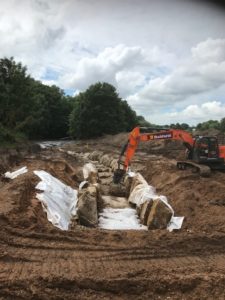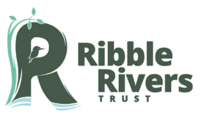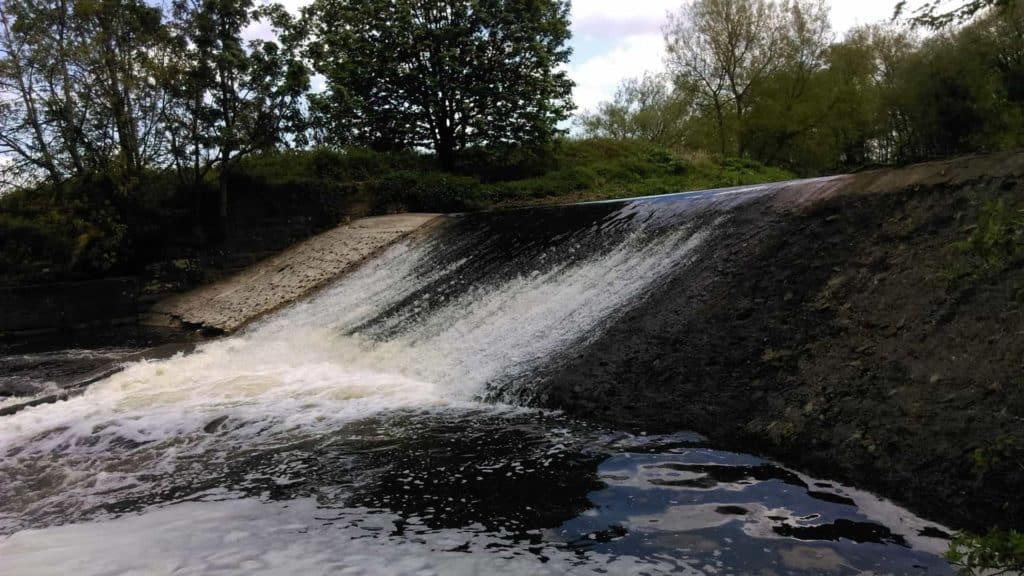Holland Wood Weir lies on the River Darwen, close to 
At over 3 metres high, 10 meters long, and 26 metres wide the weir is now a redundant man-made barrier to local and migratory fish. It is thought that eels are the only species that is able to move up and down the river, although many other species such as salmon, brown trout, minnow, chub, roach, gudgeon, stoneloach, stickleback, flounder, and bullhead are present in the area. Additionally, the weir causes other problems, with the creation of incision downstream, and gravel and silt deposition upstream.

The fish passage will be a close-to-nature bypass channel, similar in design to the one created at Oakenshaw in 2017. This channel will redirect 5-10% of the rivers flow into a separate, specially designed channel which can be used as an alternative route upstream for migratory fish.
Construction work is now underway, and we hope that work will be completed by the end of July.
This project is funded by the European Agricultural Fund for Rural Development.
This construction work is adhering to Government and Construction Leadership Council guidance for COVID-19.


